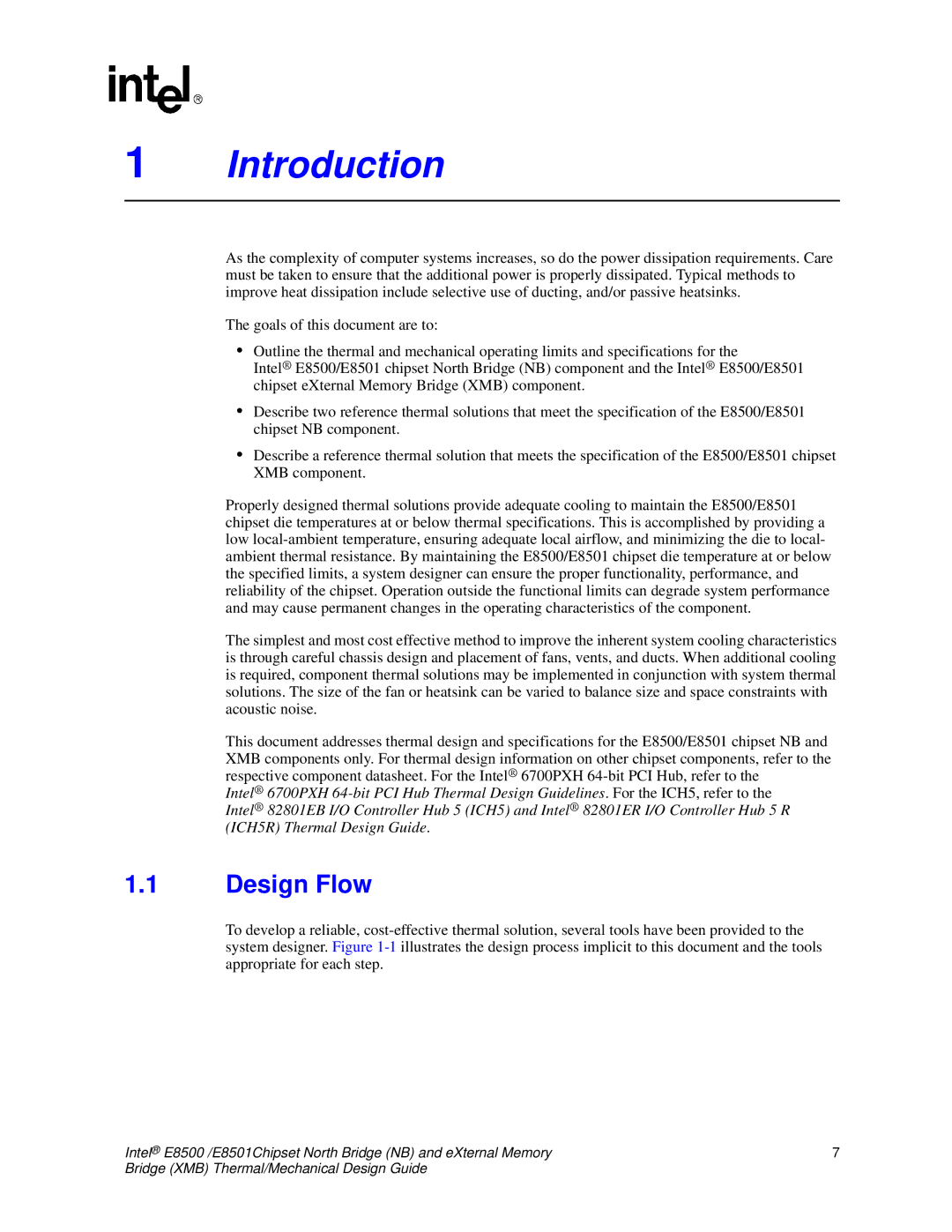E8501 specifications
The Intel E8501 is a high-performance server processor that belongs to the Intel Itanium 2 family, designed primarily for enterprise-level demands. With its advanced architecture, the E8501 targets mission-critical applications that require reliability, availability, and serviceability (RAS) alongside superior computational power.One of the key features of the Intel E8501 is its 64-bit architecture, allowing for the handling of larger data sets and improved performance for applications that demand extensive computations. This architecture is built on Intel's Explicitly Parallel Instruction Computing (EPIC) design, which enhances instruction-level parallelism and enables efficient processing of multiple instructions simultaneously, resulting in faster execution of complex tasks.
The E8501 processor is equipped with a maximum clock speed of 1.6 GHz and supports 4MB of L3 cache, significantly improving data retrieval speeds and overall throughput. The chipset accommodates up to 64GB of RAM across four DIMM slots, thus providing ample memory for demanding applications, such as databases and high-performance computing.
Additionally, the E8501 incorporates Intel's Advanced Smart Cache technology, which allows multiple cores to share the cache dynamically. This enhances performance by reducing latency and improving bandwidth for multi-threaded workloads. The processor also employs a dual-core design, which means it can execute multiple threads concurrently, thus maximizing processing efficiency.
Furthermore, the E8501 processor provides support for advanced virtualization technologies, enabling multiple operating systems to run on a single server instance. This capability is essential for data centers managing diverse workloads and consolidating IT resources.
Power efficiency is another significant characteristic of the Intel E8501, featuring enhancements that reduce power consumption while maintaining performance. This is critically important in enterprise environments where energy costs are a substantial concern.
The processor is also equipped with built-in security features, including data encryption capabilities and mechanisms to protect against certain types of cyber threats. These features ensure that sensitive enterprise data remains secure.
In summary, the Intel E8501 stands out as a robust server processor designed to meet the rigorous demands of enterprise-level applications. Its combination of 64-bit architecture, advanced caching mechanisms, virtualization support, and exceptional performance makes it a compelling choice for organizations seeking to enhance their computational capabilities and maintain high levels of reliability. As businesses continue to evolve and require more from their computing environments, the E8501's technologies and features position it as a reliable foundation for mission-critical applications.

